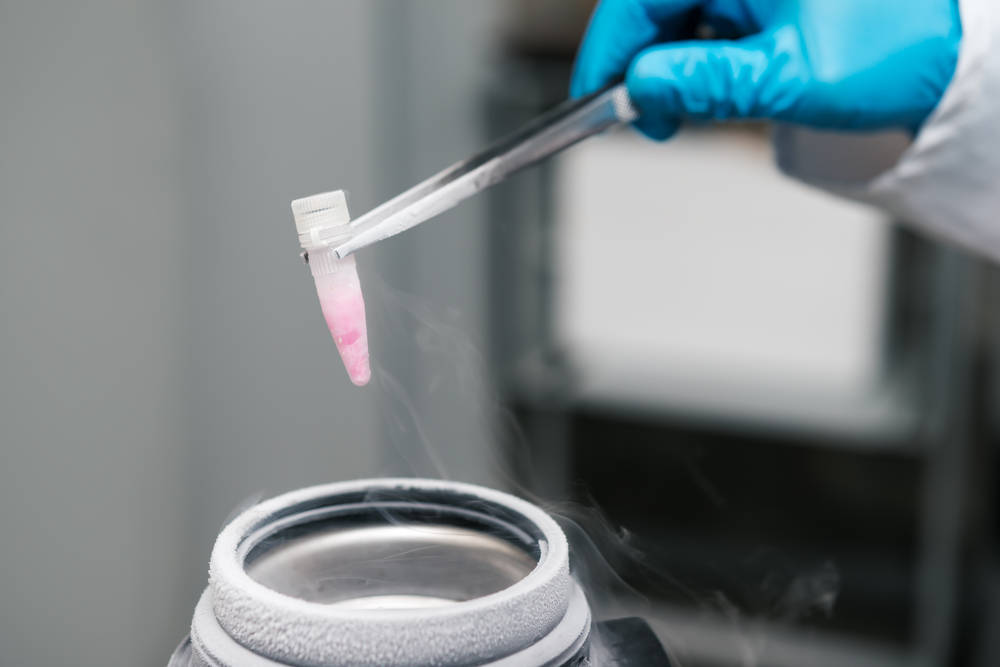Regulators tighten CGT logistics for patient safety and security
By Andrea Zobel


Many cell and gene therapies (CGTs) exhibit the potential to cure disease by addressing the root cause of the condition rather than treating the disease symptomatically. Now grouped as advanced therapy medicinal products (ATMPs), these treatments have the potential to cure disease by addressing the root cause of the condition rather than treating it symptomatically. The science behind these therapies, as well as the means to deliver them commercially, is advancing fast. According to Grand View Research, the global market for ATMPs is projected to expand at a compound annual growth rate of 13.2 percent to $21 billion by 2028.1
Autologous (one-to-one) and allogeneic (one-to-many) cell, gene, and tissue therapies are transforming healthcare and are demonstrating dramatic results. Recent approvals of autologous CAR-T therapies such as Kymriah, Tecartus, and Yescarta, and allogeneic treatments including Rethymic, Alofisel, and more recently Ebvallo, reinforce the accelerating advancements in this exciting sector of drug development.

A process beginning and ending with the patient
Autologous ATMP treatments require individual cell harvesting and a manufacturing cycle that begins and ends with the patient. Allogeneic therapies are also developed from human cells, but they are donor derived and manipulated to treat groups of patients. Despite the nuances, harvesting cells, modifying them, and introducing them to the patient is prompting the industry to rethink its approaches to managing this highly orchestrated drug delivery supply chain.
From the earliest stages of development to their commercial distribution to patients worldwide, logistical partners with established networks and cold-chain solutions are mandatory to deliver the potential of CGTs to patients globally. These therapeutics present drug developers with entirely new manufacturing paradigms with the patients and their living cells firmly at the center of a continuum of care. The patient’s or donor’s direct involvement as well as the steps in both autologous and allogeneic production methods insert operational risk into the logistical aspects of manufacturing that can affect compliance and commercial viability.
New technologies, facilities, equipment, and workflows are being developed for the ATMP supply chain to assure availability for patients and timely supply to the point of care.
Tighter controls for safety and security
Global regulators are demanding very tight control over CGT cold-chain logistics. The EU guideline notes: “Storage, transport and handling conditions have the potential to negatively impact the quality of ATMPs. The sponsor should provide the investigator with detailed instructions for the handling and storage of investigational product(s) at the clinical trial site. Where the ATMP requires controlled temperature conditions during transport and/or storage prior to administration, the sponsor should ensure there is a temperature monitor/log data and/or confirmation that required conditions have been met.”2
The FDA offers similar advice in its 2020 Chemistry, Manufacturing, and Control (CMC) Information for Human Gene Therapy Investigational New Drug Applications Guidance for Industry: “Proper control of the finished drug product is critical to your investigational studies. Therefore, your investigational new drug (IND) should include a description of how the product will be shipped to, received, and handled at the clinical site to ensure safety, product quality, and stability. Your IND should also include information on shipping and storage conditions, expiration date/time (if applicable), and chain of custody from the manufacturer to the site of administration. This all should be included in the summary information of the Common Technical Document (CTD).”3
Any deviation from storage, distribution, and traceability requirements has the potential to impact quality and therefore patient safety. Requirements for storage and distribution in current good manufacturing and good distribution practice guidelines are just as applicable for ATMPs as for any other medicinal product. However, specific guidelines and standards for ATMPs and advanced therapy investigational medicinal products (ATIMP) are published in international guidelines, including EU Guidelines on Good Manufacturing Practice specific to Advanced Therapy Medicinal Products, EU Guidelines on Good Clinical Practice Specific to Advanced Therapy Medicinal Products, and ISO 21973:2020 Biotechnology — General requirements for transportation of cells for therapeutic use.
Third-party logistics providers to the rescue
Fortunately, ATMP developers are finding third-party cryogenic logistics partners that can help manage regulatory complexity and achieve compliant systems. According to a recent World Courier study of 100 companies in the sector, most developers are leveraging third-party providers to ameliorate regulatory complexity and overcome technical challenges associated with clinical trial logistics. Respondents indicated that without the regulatory expertise and experience, global network and technical capabilities of third-party logistics providers, there will never be safe patient access to these potentially life-changing therapeutics.
Global reach and regulatory expertise are prerequisites to approval, market entry, and expansion to meet growing demand. World Courier was the first logistics company to attain global GDP certification against three major GDP standards — European Union (EU GDP Guidelines), US Pharmacopeia (USP 1079) and World Health Organization (WHO GDP) — and the only provider to hold a GDP certification with such global scope. The GDP certification has been attained across the 140-plus global logistics network and underscores the organization’s commitment to compliance and quality while addressing international requirements throughout the supply chain. By GDP compliance with some extensions, World Courier also fulfills the ISO 21973:2020 standard for cell transportation.
By utilizing its global network, World Courier helps advanced therapy companies build robust logistics platforms that support the clinical development and commercialization of therapies to meet patient treatment needs. For more information, contact us.
References
- https://www.grandviewresearch.com/industry-analysis/advanced-therapy-medicinal-products-market#:~:text=products%20market%20growth%3F-,b.,USD%2021.2%20billion%20by%202028
- https://health.ec.europa.eu/system/files/2019-10/atmp_guidelines_en_0.pdf
- https://www.fda.gov/vaccines-blood-biologics/cellular-gene-therapy-products#:~:text=The%20Center%20for%20Biologics%20Evaluation%20and%20Research%20%28CBER%29,and%20Cosmetic%20Act%20as%20enabling%20statutes%20for%20oversight.





